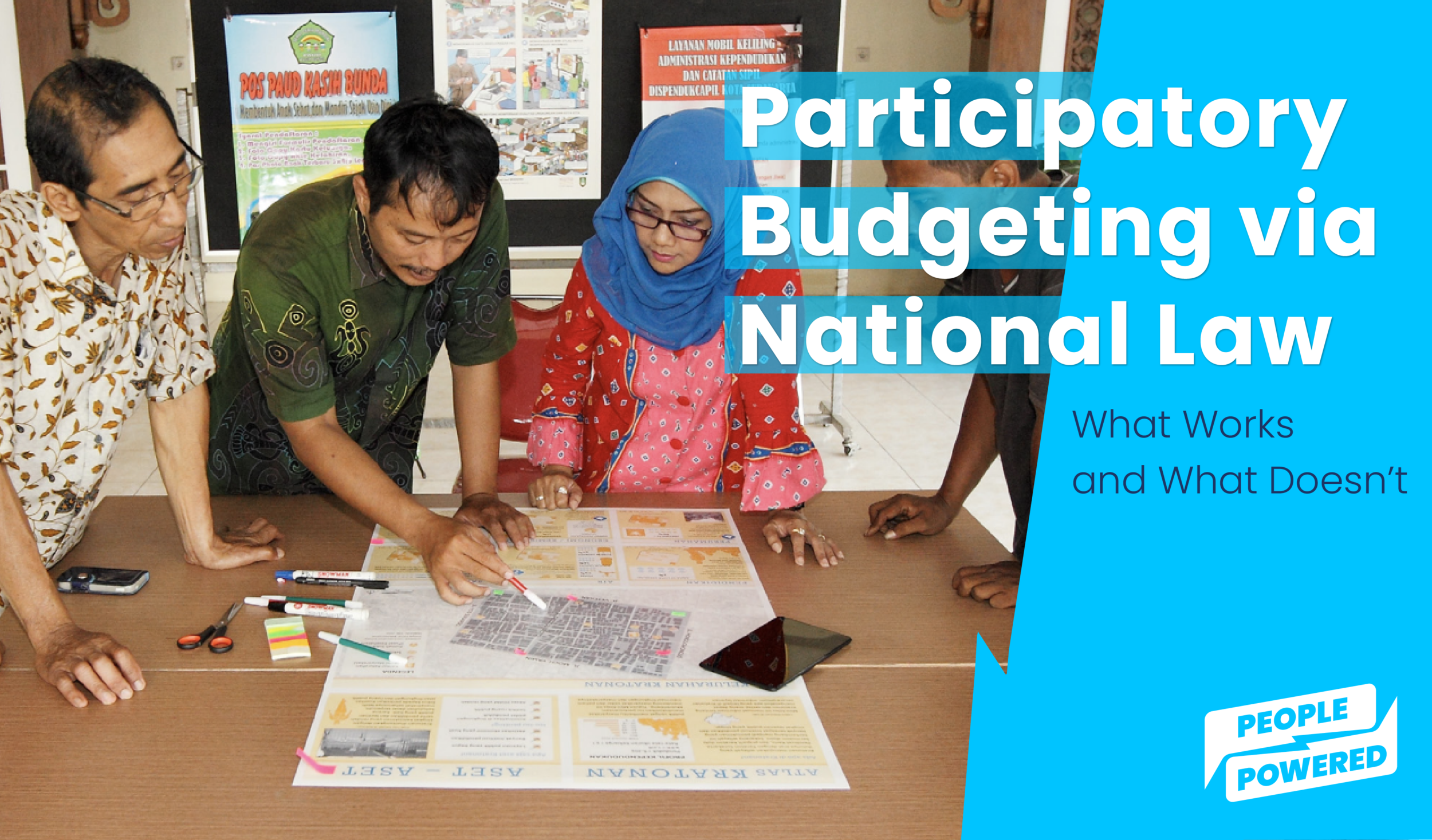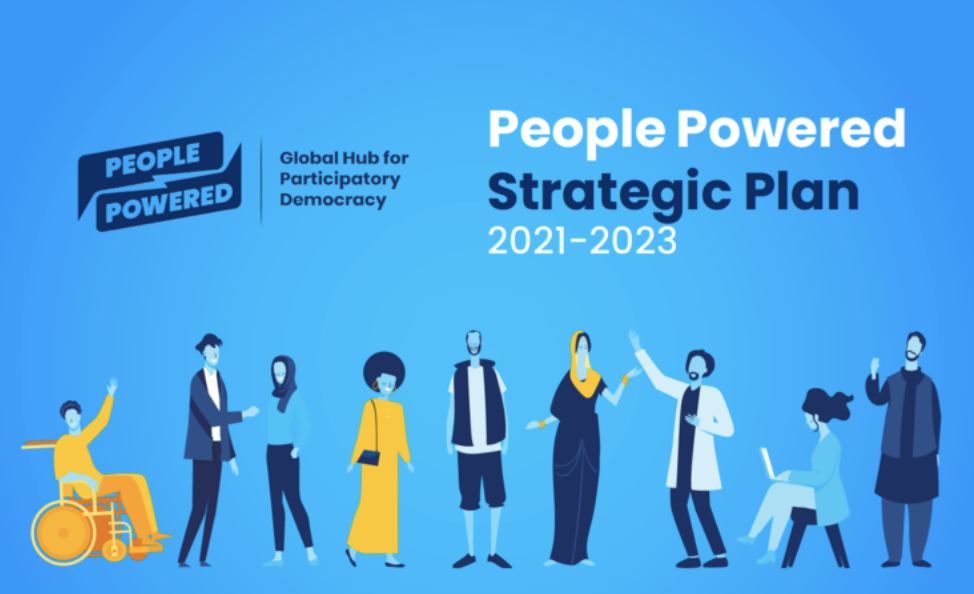Our Top Three Achievements of 2021
/2021 was challenging in so many ways, making it harder than ever for governments and communities to practice true democracy. Faced with greater needs, People Powered and its members rose to the challenge this year. Check out our top achievements from 2021 below, and please help grow this work by making an end-of-year donation, if you can.
1. We expanded global support for participatory democracy through powerful new partnerships.
To grow the collective power of advocates for participatory democracy, we launched several collaborations designed to shift more power to the people, especially marginalized communities, around the world:
With the World Resources Institute and FIMA, we’re helping governments develop plans for a just climate transition that are driven by broad and deep public participation. Politicians are not solving the myriad climate-related crises, so we’re building people power to bring about change from below.
In collaboration with the Open Government Partnership, we’re expanding the skillset of governments and organizations around the world to help them implement participatory democracy in innovative ways. We trained OGP Local members and matched them with experienced mentors to bring new participatory programs to life.
With the nonpartisan International Republican Institute, we’re making it easier for local governments to engage residents online around the world. Watch for our new guide to digital participation platforms in January, followed by an interactive playbook to guide the implementation of participatory budgeting (PB).
2. We produced essential research, and made it globally accessible.
Participatory budgeting has had transformative impact in some places, and has fallen short of its goals in others. We brought together research from around the world to understand PB’s impacts, and how to improve them:
We synthesized global data on PB impacts to develop practical recommendations. Then we shared these findings through four online seminars, info sheets, and short articles, addressing the role and impacts of PB on governance, community well-being, civil society, political participation, and civic education.
We developed a Global Theory of Change for PB. We convened members of the global PB research and practitioner boards to reach a shared understanding of what has to happen for PB to lead to positive change for individuals, communities, and governments.
We produced a new analysis of the rapid growth of national PB laws, with recommendations for making them more effective. Powered by lead researchers Stephanie McNulty and Won No, the report explains how national laws are being used to mandate or incentivize PB, and how those laws can be more effective.
3. We developed a strategic and democratic organization.
We increased the organizational capacity of People Powered so we can better encourage and support people-powered government around the world:
We launched our first strategic plan, including three primary directions for our work.
We welcomed four new staff members, four new Board of Directors members, and 17 people to the PB research and practitioner boards, who each bring needed, fresh skills to our thinking and work.
We became independent from our initial fiscal sponsor, the Participatory Budgeting Project, creating new operations and financial systems for our global work.
We built a global community of 60 member organizations (up from 44 last year), and a democratic process that invites them to decide what we do.
What’s next in 2022? Watch for the results of our member vote!
People Powered takes its mission seriously. That's why we invite our members to vote on how we should spend our budget. We'll announce the results of the vote for 2022 next week.
Our work is made possible by our members and staff around the world, and financial support from the William & Flora Hewlett Foundation, Ford Foundation, One Project, Porticus, National Endowment for Democracy, International Republican Institute, World Resources Institute, and individual donors like you. Will you join them?














